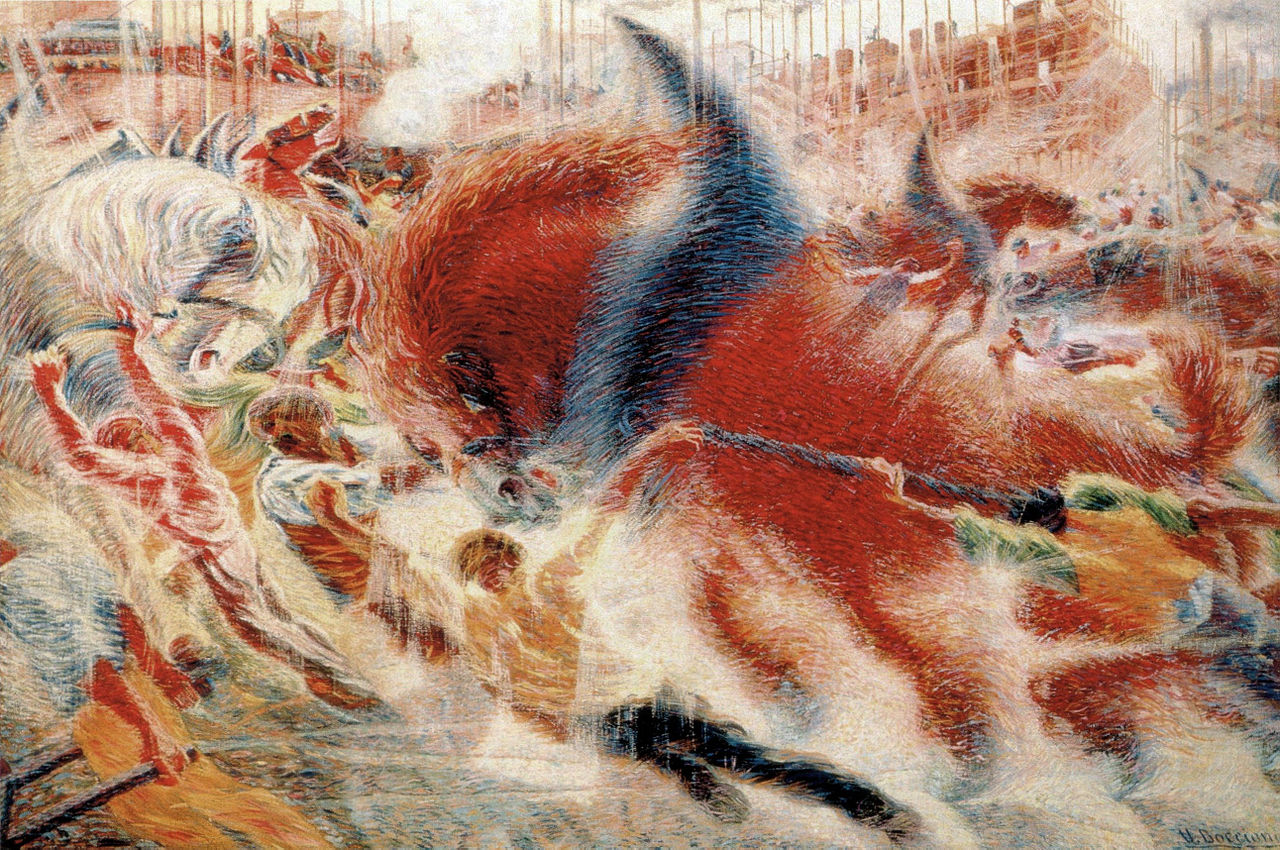

“Literature has up to now magnified pensive immobility, ecstasy and slumber. We want to exalt movements of aggression, feverish sleeplessness, the double march, the perilous leap, the slap and the blow with the fist.”
The successful first assault within the cities continued to expand outwards into the surrounding fields. The farms built to sustain the citizens of the cities became the next battleground in which to sprout new factories, adopt new technology and social structures replacing the time-tested success of the family farms. The continual need for expansion can only swell outwards from the epicenter, engulfing even the ones who chose to stay behind, rejecting urbanism. Suddenly, the ones who chose to go have a hand over the rest. It is at this moment, the futurists came face to face with their original roots. They came back to the rural countryside that raised and nurtured them, as Jesus met his Mother in the Fourth Station. Instead of empathizing and reflecting on the moment, the futurists stuck to their original creed, rejecting objections, and furthered their progressive march.
This scene of continual urban overrun of exurban communities is depicted here by Boccioni. In the background are the omnipresent factories and plumes of smoke extending to the clouds, ever overlooking the evolution of its surroundings, as an overseer to its own transformation. The labor of man and animal is in the forefront of the scene, as if to glorify their labor towards the Cities' goal. The workers are given picturesque physiques, and the animals promoted to angelic status; perfect tools for the Futurist's manifesto to push itself into the fabric of society. The movement and dynamism in the painting gives the impression of an unfinished landscape, one that can only be corrected by those who adhere to the progressive mantra and actively reject, and build over the lands that once sustained a more stable way of living.